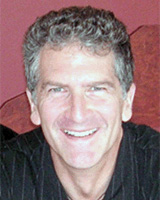Now published, see the full article 
Early Abstract:
Introduction: In Canada, rural-based family medicine residency programs were established largely in response to a shortage of rural physicians and the perception that urban-based training programs were not meeting the needs of rural populations. Examinations of practice patterns of physicians trained in rural and urban programs are lacking. The purpose of thisstudy was to compare the scope of practice of family medicine graduates who completed a rural versus an urban residency program by practice location.
Methods: This was a cross-sectional, mail out, questionnaire survey of 651 graduates who had completed the family medicine residency program at University of Alberta or the University of Calgary, Alberta, Canada during 2006-2011. Rural program graduates lived and trained in regional settings and spent a considerable amount of time in smaller rural and remote communities for their clinical experience. The training of urban program graduates was primarily based in large urban settings and family medicine clinical experience was based in the community. Practice location (rural, urban) was classified by population size of the town/city physicians practiced at. Scope of practice was ascertained through four domains of care: types of care; clinical procedures; practice settings; and specific populations. Items within each domain were rated on a 5-point scale (1=Not part of practice, 5=Element of core practice). Mean rating scores for items in the domains of care were compared between urban and rural program graduates using ANOVA.
Results: A total of 307 (47.2%) graduates responded to the survey, of whom 173 were categorized as urban program and 59 as rural program graduates. Overall, rural program graduates exhibited a broader scope of practice in providing postnatal care, intrapartum care/deliveries, palliative care, office-based and in-hospital clinical procedures, emergency care, in-hospital care, home visits, long-term care, and caring for rural and Aboriginal populations. Irrespective of program completed, those in a rural practice location had a broader scope of practice than those in urban practice. Urban and rural program graduates in rural locations tended to have a similar scope of practice. In urban locations, rural program graduates were more likely to include intrapartum care/deliveries as part of their clinical practice. Rural program graduates were more likely to practice in rural locations than urban program graduates.
Conclusion: A combination of site of training (rural or urban program) and location of practice appear to work together to influence scope of practice of family physicians. A conceptual framework that summarizes the factors that have been reported to be associated with the scope of family practice is proposed.


